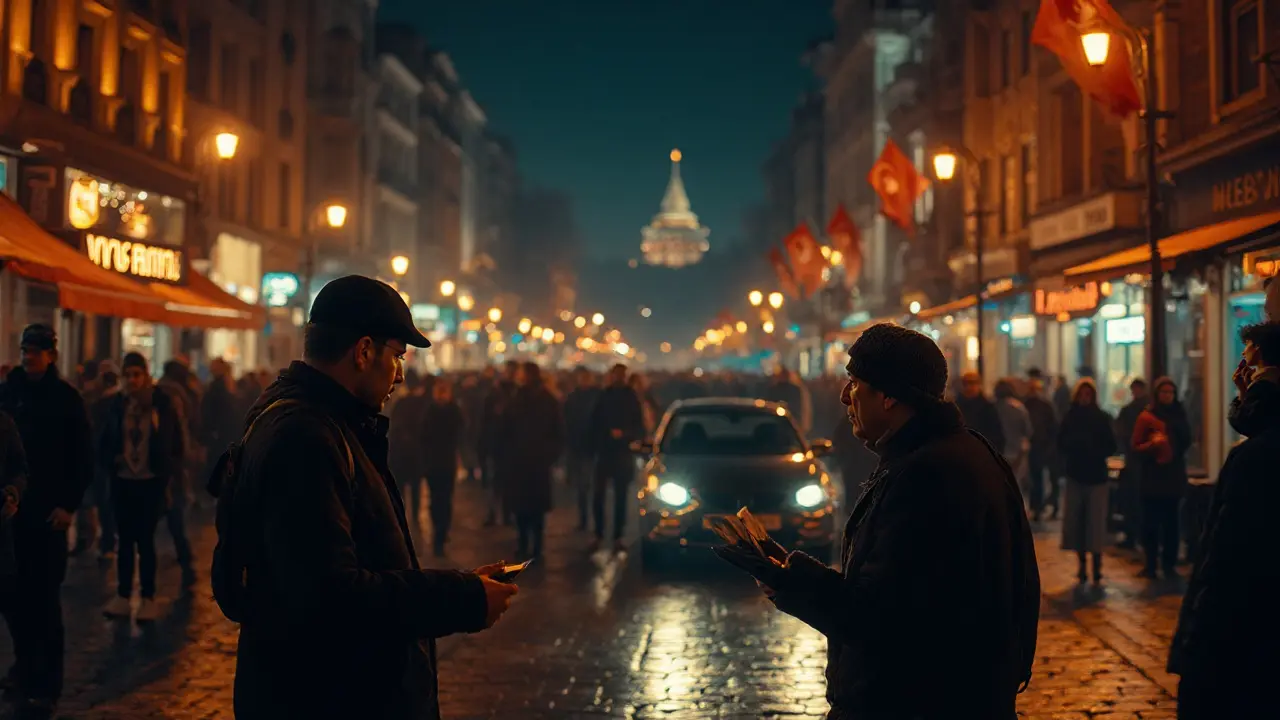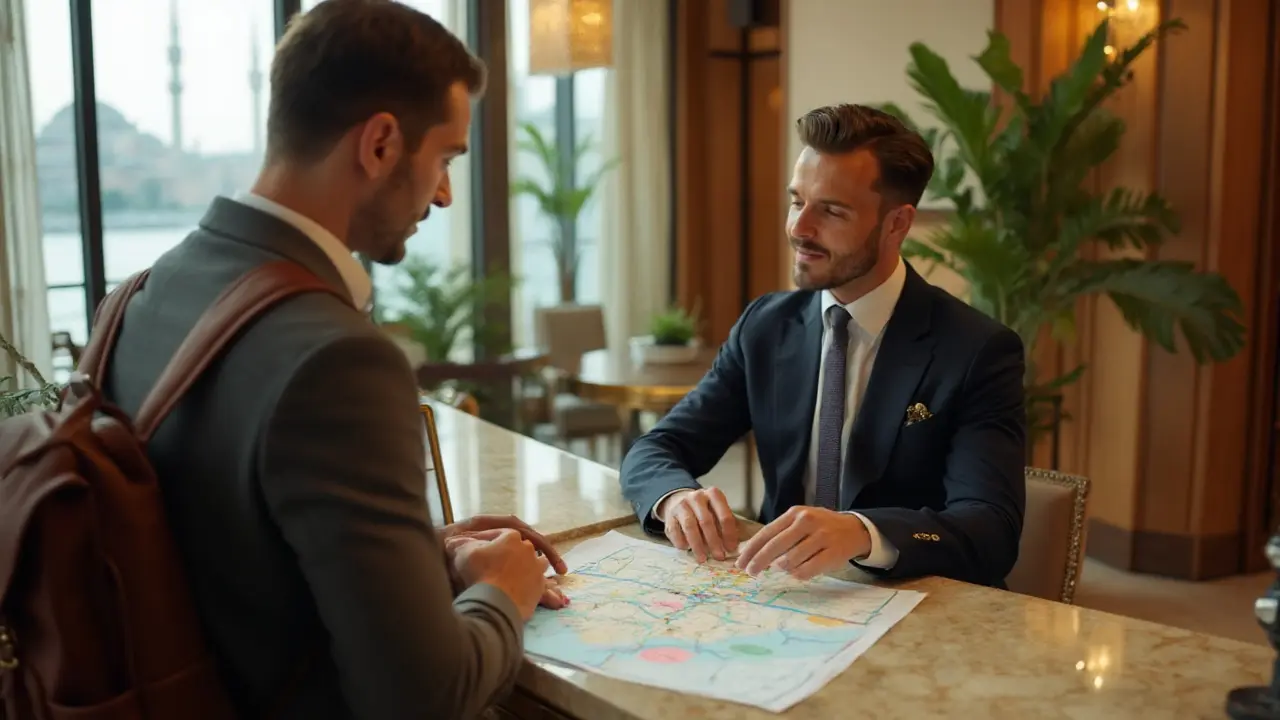Escorts and Tourism in Turkey - What Visitors Need to Know
escorts in Turkey shows up a lot in search results, but the on-the-ground reality is more complicated than glossy ads suggest. I live in Istanbul, and I see the gap every day: what looks easy online can be risky, illegal, or flat-out fake offline. This guide gives you the facts without fluff-where the law stands, how scams work, what’s culturally normal, and safer ways to enjoy companionship or social time while you’re here.
Here’s what most visitors actually want to figure out in minutes, not hours:
- What’s legal vs. illegal around escorting and adult services in Turkey?
- How do I spot fakes and avoid scams that target tourists?
- What are safe, respectful ways to meet people or find company?
- What’s the cultural vibe in Istanbul and resort cities around this topic?
- If I’m approached or pressured, how do I exit quickly and safely?
First, clarity: Turkey regulates sex work tightly. Licensed brothels exist in some cities, but “escort” advertising and procurement outside that system is illegal. Many websites mix stolen photos, fabricated reviews, and high-pressure tactics. That means your biggest risks aren’t just legal-they’re also fraud, blackmail, and safety threats. The smartest move is to understand the landscape, protect yourself, and choose social options that don’t put you in a bad spot.
Culturally, Turkey blends conservative norms with a lively urban scene. PDA is common in nightlife areas like Beyoğlu or Kadıköy, yet attitudes can be more traditional in family districts or smaller towns. Respect, discretion, and reading the room go a long way here. If you keep a cool head and a clear plan, you’ll have a great time without drama.
| Activity/Context | Legal Snapshot | Risk Level | Practical Note |
|---|---|---|---|
| Licensed brothels (registered workers) | Heavily regulated; not openly advertised to tourists | Medium | Hard to access/verify; seek no information online; we don’t recommend attempting |
| Escort ads (web/social/WhatsApp) | Illegal to advertise/procure | High | Common vectors for fraud, blackmail, and scams |
| Street solicitation | Illegal outside licensed system | High | Often linked to scams or coercion |
| Dating apps (social context) | Legal | Low-Medium | Be transparent; keep it social and consensual; avoid transactional asks |
| Non-romantic social experiences (tours, classes, meetups) | Legal | Low | Great way to meet people safely and respectfully |
Rule of thumb: if money-for-intimacy is implied, assume it’s illegal and risky. If it’s social, transparent, and non-transactional, you’re on solid ground. When in doubt, step back.
Common red flags I see reported by travelers:
- “Agency” asks for a deposit or ID photo “to confirm.”
- Profile photos that are studio-perfect or identical across multiple sites.
- Urgent pressure: “Driver is outside; pay now.”
- Too-good-to-be-true prices or “VIP guaranteed” claims.
- Requests to switch to an encrypted app followed by a sudden “fee schedule.”
If any of this pops up, disengage. Don’t argue. Just stop replying and block.

Safety, Law, and Ethics: The Ground Rules in 2025
This part is the real backbone. Laws and enforcement shift, but the core stays the same: sex work is only legal within a licensed, state-regulated system. Escort-style advertising, third-party facilitation, street solicitation, and online promotion fall outside the legal framework and can bring legal trouble. Enforcement varies by city and season, but the risk is always there-especially for foreigners who might also face immigration consequences.
Legal context in plain language:
- Sex work is limited to registered individuals in licensed venues. Access is controlled; it’s not tourism-facing.
- “Escort” marketing and procurement are illegal. Sites that look slick can still be operating unlawfully.
- Pimping, brothel-keeping, and trafficking are serious crimes with strict penalties.
- Police do run checks and stings, more often in resort seasons or around big events.
Financial and digital safety basics:
- Never send deposits, crypto, or gift cards “to verify.” That money is gone.
- Don’t share passport scans or hotel booking codes. Identity theft and room fraud are real.
- Avoid giving your exact room number to strangers online. Meet people in public places only if it’s social and safe.
- Guard your cards. If a venue “must hold” your card or insists on unusual terminals, walk away.
- Use your phone’s privacy settings. Cover the peephole; watch for hidden cameras in mirrors or smoke detectors if anything feels off.
Personal safety basics that actually help:
- Keep your plans simple and tell a friend your route and expected return time.
- Stick to well-lit areas and busy venues. Avoid unfamiliar apartments and unmarked cars.
- Alcohol is fine; overdoing it is when people get robbed or coerced. Pace yourself.
- If you feel cornered, get to a staffed location (hotel lobby, restaurant) and ask for help.
Ethics matter too. Trafficking, coercion, and exploitation exist worldwide, and Turkey is no exception. If the situation looks pressured, underage, or controlled by third parties, walk away and consider reporting to local authorities or your consulate. Consent, dignity, and mutual respect aren’t optional-they’re the baseline. If you want companionship, choose avenues that are social, transparent, and fully legal.
Health note: if you engage in any adult activity anywhere in the world, protect your health. Use protection, avoid substance-fueled decisions, and get tested regularly back home per your physician’s advice. That’s basic self-care, not stigma.
| Common Scam/Pressure | How It Plays Out | Best Response |
|---|---|---|
| Deposit to “confirm” | Payment demanded before meeting; they vanish after. | Don’t pay. Stop contact. Block. |
| Driver already “outside” | Creates urgency to hurry and pay upfront. | Refuse. You owe nothing. End the chat. |
| Police impersonation | Fake “officer” threatens fines unless you pay. | Do not pay. Move to a public, staffed place and seek real help. |
| Bar/club card swap | Your card is switched; huge fake bill appears. | Keep card in sight; if pushed, leave and find staff you trust. |
| Hidden camera threat | They claim to have video and demand money. | Do not engage or pay. Save evidence. Contact your consulate and hotel. |

Practical Scenarios, Safer Social Options, and How to Enjoy Istanbul Without Trouble
Tourist-heavy areas attract opportunists. If you get mystery texts on WhatsApp, random Instagram DMs, or you’re approached on the street with “special offers,” you’re not special-you’re being targeted. Keep your cool, say “no thanks,” and keep moving. You don’t need to explain yourself or negotiate. Silence is a complete answer.
What if you genuinely want company, conversation, or a fun night out? You’ve got plenty of solid options that don’t risk legal or personal trouble. Think of Istanbul as a city-sized tapas bar: lots of small, flavorful ways to sample the vibe without burning your tongue.
Safer social ideas that work:
- Food and culture tours in Beyoğlu, Karaköy, Kadıköy. Small groups, easy conversation, zero awkwardness.
- Live music and meyhane dinners. Reserve a table, talk to your neighbors, let the night take its time.
- Salsa/kizomba socials or swing nights. You’ll meet people fast, and the atmosphere is friendly.
- Language-exchange meetups and co-working cafés. Low pressure, diverse crowd, good for daytime socializing.
- Bosphorus cruises (shared tables). It’s hard not to talk when the view looks like a movie set.
Dating apps are fine for social connections if you keep the vibe clear and consensual. Don’t imply transactions. Meet in public first, and if the chat feels off, call it. You’re here to enjoy your trip, not to troubleshoot strangers’ drama.
FAQ-style quick hits:
Is escorting legal in Turkey? Escort advertising and procurement are illegal. Sex work is permitted only within a licensed, state-controlled system that isn’t tourism-facing.
Will I get in trouble for chatting online? Browsing isn’t a crime, but arranging or paying for illegal services can land you in serious trouble-and scams often start in chat. Exit early.
Are foreign visitors commonly targeted? Yes, because tourists are assumed to be short on context and quick to pay. That’s why scams focus on deposits, card tricks, and blackmail.
How is this different from dating apps? Dating apps are for social, consensual connections. Keep it non-transactional, meet in public, and set boundaries. If money comes up, you’re drifting into risky territory.
What should I do if something feels wrong? Leave the situation, get to a staffed place (hotel lobby, restaurant), and ask for help. Tell your hotel. Save evidence if you’re threatened. Your safety beats everything.
Simple playbook to keep handy:
- No deposits. No ID scans. No sharing your room number.
- Public meetups only; stay where there are staff and cameras (the hotel’s kind).
- Keep your card in sight; double-check bills; say no if anything feels odd.
- Avoid encrypted app switches with strangers; it’s where pressure tactics start.
- If someone “knows a place,” you don’t. Politely decline and choose your own venue.
Want to experience Istanbul with ease? Book reputable tours, take a hamam day, catch a rooftop sunset, or join a class. You’ll get human connection without the headache. If you’ve got specific questions, drop them below-happy to share local, culture-savvy ideas that fit your style.
Found this useful? Share it with a friend planning a trip. Want more Istanbul insights? Follow my blog for people-first travel tips. Have a story or a question? Add it in the comments so we can help the next traveler.
Note: Some links may be affiliate links, but all recommendations are based on research and quality.


Thanks for the clear guide, really helpful! 😊
I appreciate how you broke down the legal landscape without sounding like a textbook. The bit about licensed brothels being hidden from tourists is spot on. Also, the tip to keep your room number private is something many overlook. Your advice on using public venues for meet‑ups really makes the city feel safer for newcomers.
Reading through the list of red flags feels like a mental checklist you can pull out any time. It’s easy to get overwhelmed, but your calm tone helps a lot. I especially liked the reminder that a simple "no thanks" can end a risky conversation. Keeping those steps simple makes the whole process less intimidating.
I think this guide is super usefull but I have some doubts about the part on brothels. The doc says they are "hard to access" but i have seen some locals mention hidden doors in Galata. Also sometimes the scam ads look realer than real! Maybe adding a few local phone numbers for legit tour groups could help visitors. The more real world examples you give the better it is for us who cant read Turkish fluently. Just a thought.
Great points! 👍 Adding local contacts would definitely make things easier for travelers. I also love the idea of checking reviews that have pictures of actual venues – that cuts down on the fake‑profile problem. Keep the tips coming, they’re super useful! 😊
The section on public meetups really resonated with me. I’ve always found language‑exchange cafés to be a safe way to meet locals without any pressure. Your reminder to keep a card in sight is a habit I’ll stick to. Thanks for the friendly, practical vibe!
Lots of info but watch out for hidden agendas. Some of those "licensed" places might be front for bigger rings. Also those apps can be a gateway for data collection yeah you never know who’s listening. Stay sharp.
Good reminder to stay safe.
👍 Simple and clear – that’s what travelers need. Keep it short and sweet 🙂
The guide does a solid job of laying out the legal framework for sex work in Turkey, making it clear that only state‑regulated venues are legal. It also points out that advertising or procuring services outside that system can land you in hot water with the police. The red‑flag checklist is especially handy; a request for a deposit or an urgent driver is a classic scam tactic. I like how the article stresses keeping personal documents private, like passport scans or hotel codes. Protecting your identity online is a must, especially with the rise of fake profiles that steal photos. Public meet‑ups in well‑lit places such as cafés, co‑working spaces, or organized tours are recommended for safety. These venues often have staff who can intervene if something feels off. The suggestion to use dating apps for platonic connections, while avoiding any monetary transactions, creates a clear boundary between socializing and illegal activity. The advice to stay sober enough to make good decisions is practical, as intoxication can make you a target for thieves or scammers. It’s good to see a reminder that if you ever feel pressured or threatened, you should move to a staffed area like a hotel lobby. The article also touches on the importance of reporting suspicious behavior to authorities or your consulate. That proactive step can help protect both yourself and other travelers. Health tips, such as using protection and getting tested regularly, round out the guide with a responsible approach to personal well‑being. In short, the article offers a balanced mix of legal insight, safety tactics, and cultural awareness for anyone visiting Turkey. By following these guidelines, tourists can enjoy the vibrant social scene while staying out of legal trouble.